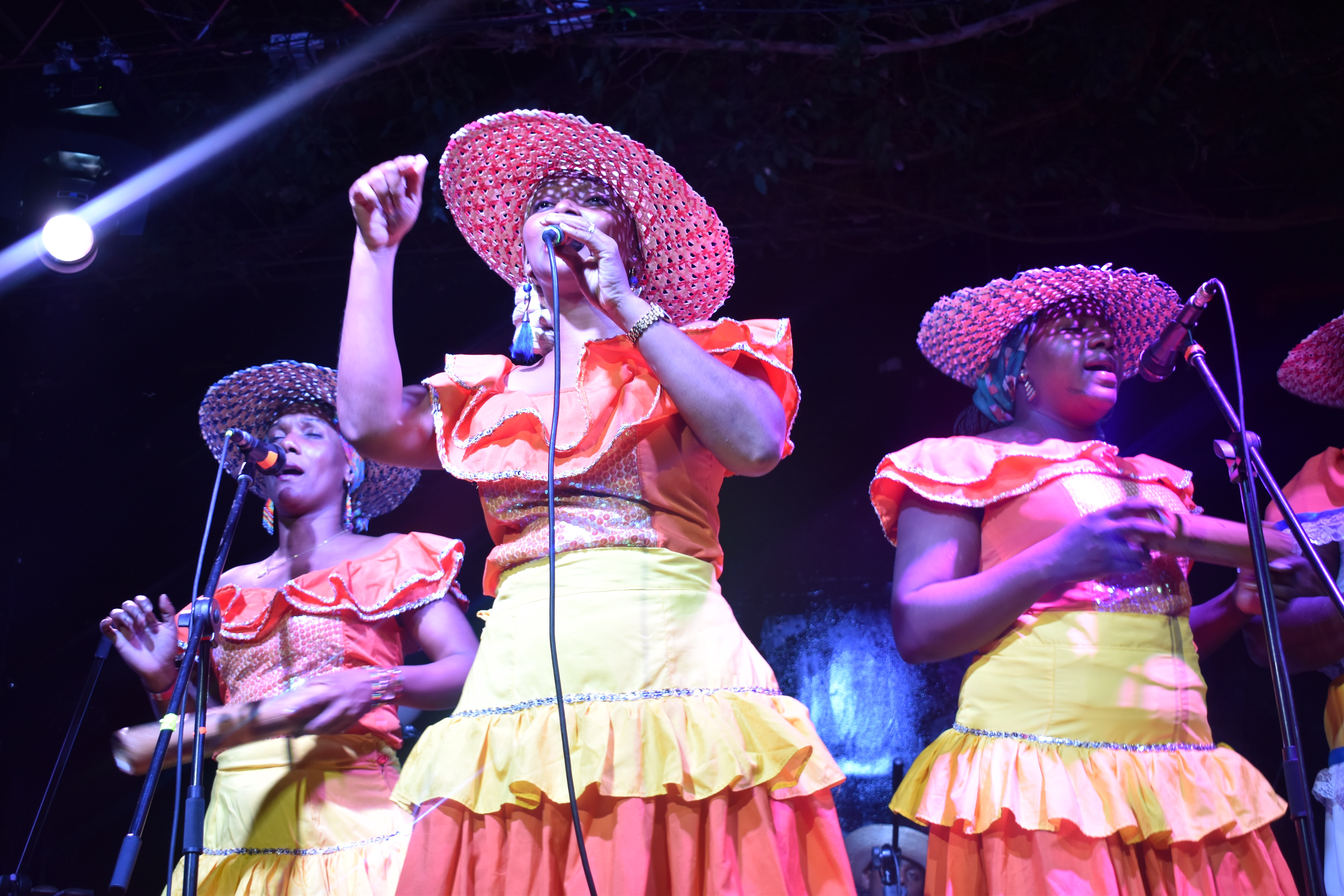
Bedoya condemns Colombia’s failure to protect the victims of sexual violence. Photo: José Pizarro
Oli Pritchard listens to Florence Thomas and Jineth Bedoya speak about feminism and the difficulty women face today in Colombia’s macho society
Florence Thomas and Jineth Bedoya are voices that you need to hear. Why? Because both are women and both are prepared to criticise patriarchy and speak out against some commonly accepted truths. There’s a lot to be said for challenging ‘common sense’ and established tradition, as they are rarely sensible and often established for bad reasons. It’s fair to say that this chat about feminism was not making any great strides forward, but it certainly put into stark relief the difficulties of getting basic feminist ideas into the Colombian mainstream.
We started with an excoriating diatribe from Thomas, her voice aflame with fury as she narrates the current situation facing women in Colombia. “Violence has a thousand faces and thousand ways of being expressed”, she tells us, “not always physical, but always political”. She decries the reinforcement of traditional values, pointing out that gifting a kitchen item to a mother or a wife is simply reinforcing gender stereotypes. She tells us of “the fear we have in the street at night, in an empty lift, in a basement”. Some men are maybe shocked, but she reminds us that this is no exaggeration, not at all. Her voice cracks once or twice as the clearly emotional topic becomes at times too raw, but this is not a sad start. It is uplifting and direct, promising the possibility of change, not simply attacking the status quo.
We then move into debate, expertly controlled by Melba Escobar, who allows each speaker her time yet seamlessly moves us to different ground. Bedoya takes the chance to promote her campaign no es hora de callar, stressing that women need to “lift our voices” and speak out. Florence chimes in agreement, “women want to talk, want to be heard, but it’s not always possible. Well, we will speak for those who cannot”.
Jineth gives prominence to violence in the home, pointing out that this is the place where women are most vulnerable: “From a husband who raises his fist, or an iron, in the house. These women can be murdered at any time. According to the state 6,100 women a year are threatened by their spouses. Where are the police? Where is the fiscalia? Where is the system of mental health to look after them? Where are the resources to rehome them somewhere else in Colombia? The system does not work”. She goes on to point out that Colombia is “lamentably, second in the hemisphere for sexual violence”, despite it being a grave crime under Colombian law. Worse, that the impunity rate is a whopping 98%, which she repeats twice to make clear. When a woman speaks, Jineth tells us, there is a rush to gag her, to silence her, to block the female voice from being heard.
Florence lays the blame for this squarely at the door of the media, who are averse to naming and shaming. It is changing, she comments, but is still too timid. “We have worked hard” she declares, “to make violence against women visible”. She warns us against the term “domestic violence, for a family has many people, no? And against whom is this violence? I apologise to the few men abused by their wives, but this is overwhelmingly a case of violence from men to women. Sexual attacks on girls too, is the same as attacks on women”.
Cuba is the next area for discussion, as Thomas brings attention to the peace process. “where are the women in Havana? I don’t know about you, but for me it’s very illustrating when I see the photos in our press of 16 men around a table, and, at times, in the corner a woman.” This raises bitter laughs for her sarcastic delivery, but the point is deadly serious. “What will we construct? The peace for men, or for everyone? Where are the women in Havana? Where are they? This for me is absolutely shocking. It is so hard to make visible the voices of women, even at a point so important for Colombia”. It is, as she says, an ethical problem for Colombia. In a country still so utterly male-dominated in almost every sphere, we need to stop silencing women. 51% of the population cannot be ignored.
Jineth gives us the example of her case, where she was assaulted and kidnapped by a number of men, as an important parable. “Is jail the only justice? 5,10, 20 years in jail? For victims, a grand part of justice is the truth. And this is what we do not have in Colombia. The truth.” She explains that “pardon is a huge thing as a survivor.” She continues, “It’s something immense that Colombia still does not realise. It is a hard thing to do, and we should not feel that we have to pardon our attackers, not women who have been victims of abuse, nor those affected by the conflict.”
It’s tempting for male knuckleheads to term intelligent women that have the temerity to challenge the established order ‘feminazis’ and to accuse them of hating men. But both speakers are effusive about the role of men in the struggle for feminism, Bedoya saying “it is not an easy fight, and everyone needs to work together, men and women”. Thomas asks for a round of applause for the men that have come to the talk, a gracious gesture indeed. She goes on to explain that “plurality is not the same as machismo, it’s not a negative thing. We don’t stand against masculinity at all, but against the masculine identity in its clichéd form. Remember that it’s also hard for men who do not follow this cliché, who dress and act differently”. It’s an important part of the argument, though one suspects that many of her bone-headed critics will ignore it.
We are running late, so sadly the conversation is brought to an abrupt end. There is a palpable sense of disappointment in the room before almost as one, the majority of the crowd storm the stage to speak with these wonderful women. It is clear that they do indeed speak for many women, and hopefully will have given others the courage to stand up and speak out themselves.





